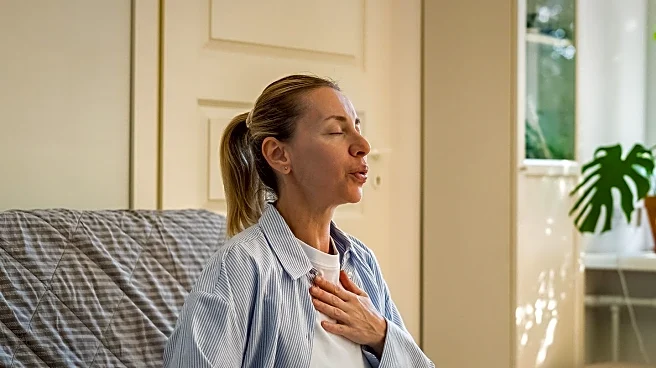What's Happening?
Teresa Hammond, a staff reporter for The Oakdale Leader, shares her personal journey of self-management while dealing with a cancer diagnosis. Hammond discusses her transition from a full-time to part-time work status, emphasizing the importance of prioritizing
her health. She candidly describes her ongoing battle with Stage 4, triple negative breast cancer, which requires weekly IV chemotherapy treatments at UCSF. Hammond highlights the challenges of managing her health alongside her professional responsibilities, and the necessity of adjusting her work-life balance to accommodate her treatment schedule.
Why It's Important?
Hammond's story underscores the broader issue of how individuals manage chronic health conditions while maintaining professional and personal responsibilities. Her experience highlights the need for flexible work arrangements and supportive healthcare systems that can accommodate the demands of ongoing treatment. This narrative is particularly relevant in discussions about workplace policies and the importance of mental and physical health support for employees facing serious health challenges. Hammond's journey also serves as a reminder of the resilience required to navigate life with a chronic illness.
What's Next?
As Hammond continues her treatment, she may need to further adjust her work commitments to prioritize her health. Her story could inspire other individuals facing similar challenges to advocate for more supportive workplace policies and healthcare options. Additionally, Hammond's experience may prompt discussions within her community about the importance of understanding and supporting those with chronic health conditions, potentially leading to increased awareness and empathy.
Beyond the Headlines
Hammond's reflections on self-management amidst her cancer battle may have deeper implications for societal attitudes towards chronic illness and the support systems available for those affected. Her narrative could contribute to broader conversations about the stigma associated with chronic health conditions and the need for more inclusive and understanding environments. Furthermore, her story may inspire others to share their experiences, fostering a community of support and solidarity among those facing similar challenges.


















